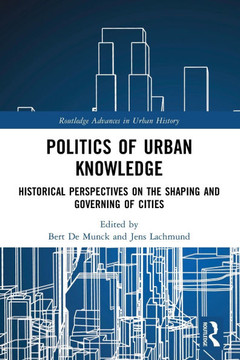
Createspace Independent Publishing Platform
Authority, Legitimacy, And The Qawm: Historical Perspectives On Emergent Governance In Afghanistan
Product Code:
9781543051575
ISBN13:
9781543051575
Condition:
New
$13.38
This monograph fills a gap in contextual knowledge on Afghanistan needed to refine the U.S. strategic approach. It analyzes the emergence of governance in Afghanistan and examines the propensity of Afghans to respond to external authority and foreign intervention. It highlights findings in two areas -- Afghan identity and power structures. First, Afghanistan's population is poorly characterized in the reductionist analysis that is commonly applied. Each Afghan identifies with one or more qawms, a social organization or identity group. The term is poorly understood, but essential in understanding the complex dynamics of the disparate Afghan communities. Second, the current approach to establishing centralized governance opposes the traditional power and authority mechanisms. The propensity of most of the qawms is to resist perceived illegitimate authority. Historically, the only strong central governments that succeed in Afghanistan have done so by co-opting a sufficient number of the qawms and gaining access to external resources, ranging from the plunder of neighbors to direct aid from foreign governments.
| Author: U S Army Command and General Staff Coll|Major J Keller Durkin, Penny Hill Press |
| Publisher: CreateSpace Independent Publishing Platform |
| Publication Date: Feb 12, 2017 |
| Number of Pages: 58 pages |
| Language: English |
| Binding: Paperback |
| ISBN-10: 154305157X |
| ISBN-13: 9781543051575 |

Authority, Legitimacy, And The Qawm: Historical Perspectives On Emergent Governance In Afghanistan
$13.38
This monograph fills a gap in contextual knowledge on Afghanistan needed to refine the U.S. strategic approach. It analyzes the emergence of governance in Afghanistan and examines the propensity of Afghans to respond to external authority and foreign intervention. It highlights findings in two areas -- Afghan identity and power structures. First, Afghanistan's population is poorly characterized in the reductionist analysis that is commonly applied. Each Afghan identifies with one or more qawms, a social organization or identity group. The term is poorly understood, but essential in understanding the complex dynamics of the disparate Afghan communities. Second, the current approach to establishing centralized governance opposes the traditional power and authority mechanisms. The propensity of most of the qawms is to resist perceived illegitimate authority. Historically, the only strong central governments that succeed in Afghanistan have done so by co-opting a sufficient number of the qawms and gaining access to external resources, ranging from the plunder of neighbors to direct aid from foreign governments.
| Author: U S Army Command and General Staff Coll|Major J Keller Durkin, Penny Hill Press |
| Publisher: CreateSpace Independent Publishing Platform |
| Publication Date: Feb 12, 2017 |
| Number of Pages: 58 pages |
| Language: English |
| Binding: Paperback |
| ISBN-10: 154305157X |
| ISBN-13: 9781543051575 |





